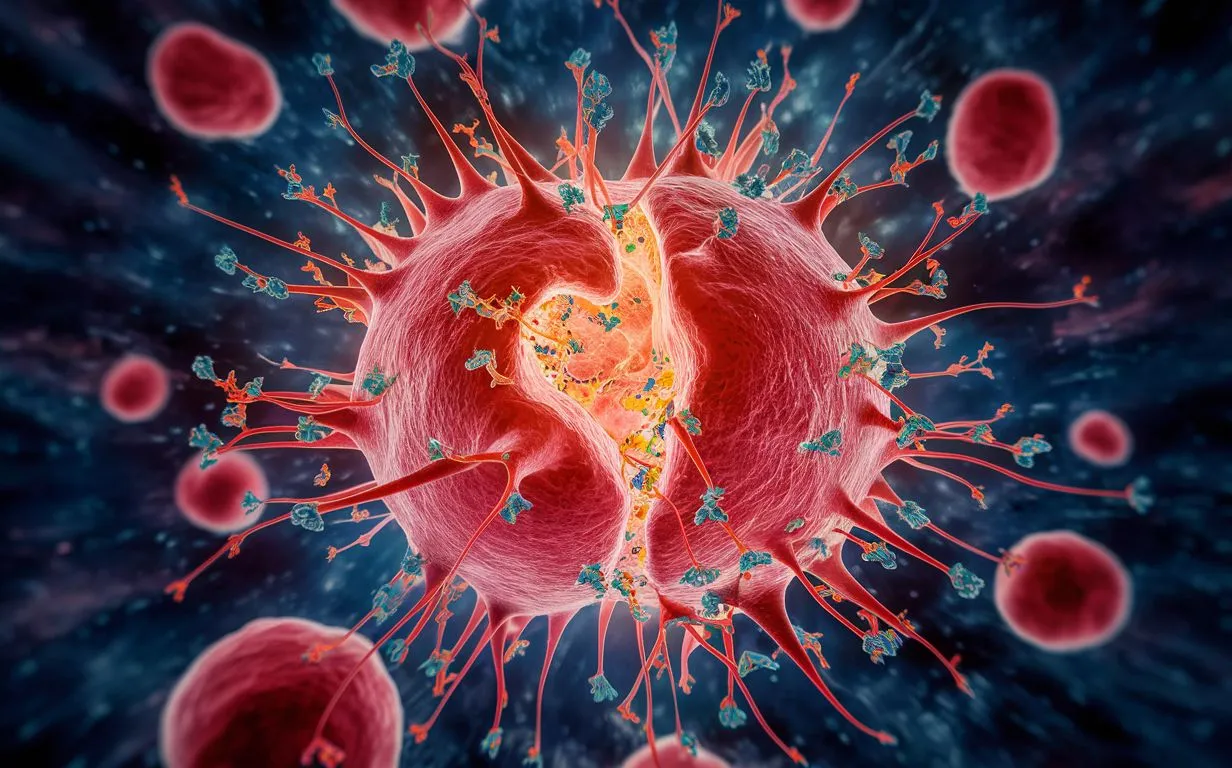Follow us on Google News (click on ☆)

After cancer cells die, their outer membrane usually becomes compromised. In the case of apoptosis, a silent form of cell death, the cell shrinks, and fragments of its membrane break off, attracting phagocytes—immune cells that clean up the debris. These phagocytes then break down the dead cells into smaller components, such as sugars and nucleic acids, which are recycled by other cells in the body.
However, cell death is not always silent. In necroptosis, an explosive form of cell death, cancer cells burst open, releasing their internal contents. Phagocytes also intervene to clear away this debris, but this process can trigger inflammation. This inflammation can sometimes stimulate the growth of surviving cancer cells, a phenomenon known as the Revesz effect.
Recent studies show that the release of cellular debris can accelerate the spread of cancer cells. In 2018, a study found that pro-inflammatory cytokines, released by macrophages, can encourage tumor growth. These molecules are released when cancer cells die due to treatments such as radiotherapy or chemotherapy.
To counteract this effect, researchers are exploring solutions such as resolvins, molecules derived from omega-3 that reduce inflammation and promote the clearance of cellular debris. However, their effectiveness in cancer treatment remains to be confirmed.
In 2023, another study revealed that the nucleus of dying cancer cells can rupture, releasing DNA and other molecules that promote metastasis. Blocking these signals could potentially prevent cancer from re-emerging after treatment.
These studies, although preliminary, open promising perspectives for better understanding the biological mechanisms of cancer and developing more effective treatments. The fight against cancer could thus incorporate new approaches to manage cell death and its consequences.